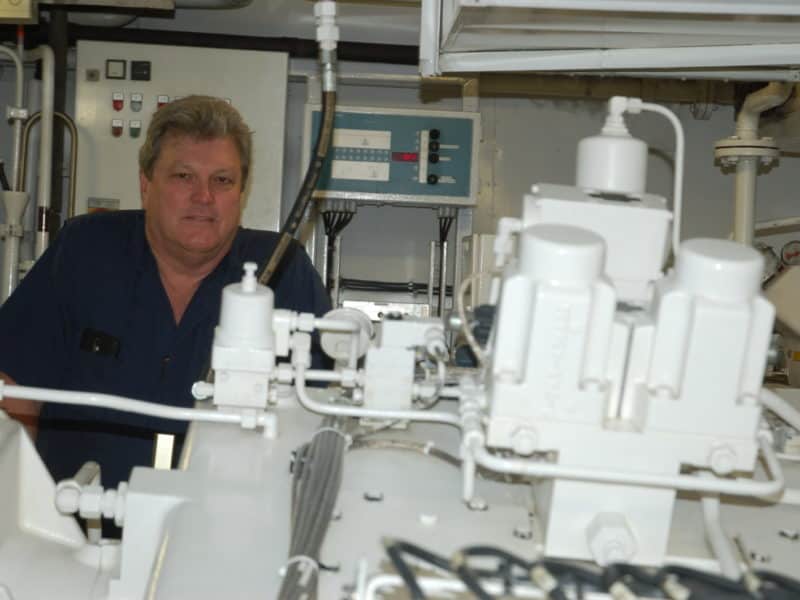Yacht captains and crew sampled the offerings at Spa 66 at Hyatt Regency Pier Sixty-Six in Ft. Lauderdale tonight. They tried massage therapy, accupressure, reflexology,…

Yacht crew retention discussed at Yacht Captains Association
Oct 30, 2014 by Lucy Chabot ReedCrew retention is on everyone’s radar as the yachting industry shifts out of its recession doldrums, and captains are paying attention.
More than two dozen captains attended last night a seminar of the Yacht Captains Association in which a group of panelists shared ideas on how to keep good crew.
“Depending on the owner you work for, you have to think outside the box in terms not of what you pay but of crew benefits,” said Capt. Michael Schueler, a panelist and co-founder of the YCA. “There are a lot of interesting things you can do to get crew to stay longer.”
Some of those things include giving crew time for courses and then reimbursing them once they had stayed a year, figuring out how to give a great crew member a couple extra days vacation, and letting crew invite family on voyages when their cabin mate has time off.
“When your crew asks for a favor and you do it, you build incredible loyalty,” he said. “I’m saving my owner a truckload of money if my crew stays five years.”
He pointed out the additional level of safety that a long-term crew creates as well.
“I don’t take care of the owner; I don’t fix the engines, I don’t make the food,” he said. “My job is to take care of the crew, who take care of the owner.”
The panel also talked about leadership skills, and encouraged captains to take the leadership part of their jobs as seriously as their navigating.
“When I delegate more, it gives me more time and there are less problems on the boat,” Schueler said. “It lets me see the forest instead of staying focused on one tree for too long. When I look at the forest, I can see there’s a little problem starting over here and I can address it before it gets this big.”
Poor management and onboard politics are the main reasons that crew leave jobs on yachts, said Ami Ira, a panelist and owner of the placement agency Crew Unlimited. According to a recent CU crew retention report, it wasn’t money that would have made them stay, but rather time off and a more professional work environment.
That starts with standing orders “to give crew clear-cut rules to abide by,” she said. To hire the right people initially, captains and yachts should begin with a clear job description, a proper interview, and a scorecard.
“Do the first interview on the phone,” Ira said. “And keep a scorecard. Have a list of desired attributes, negative attributes, the skills and legal bits required, and your personal preferences. Score them all, and anyone who scores less than 70, don’t call them back.”
That scorecard is imperative to hiring the right person, said Dennis Lucas, a panelist and professor of executive education at Nova Southeastern University.
“People quit people, they don’t quit jobs.”
Lucy Chabot Reed is editor of Triton Today; [email protected].








